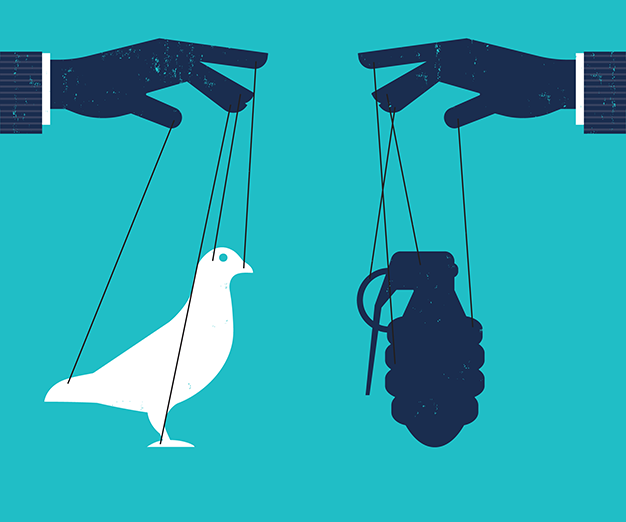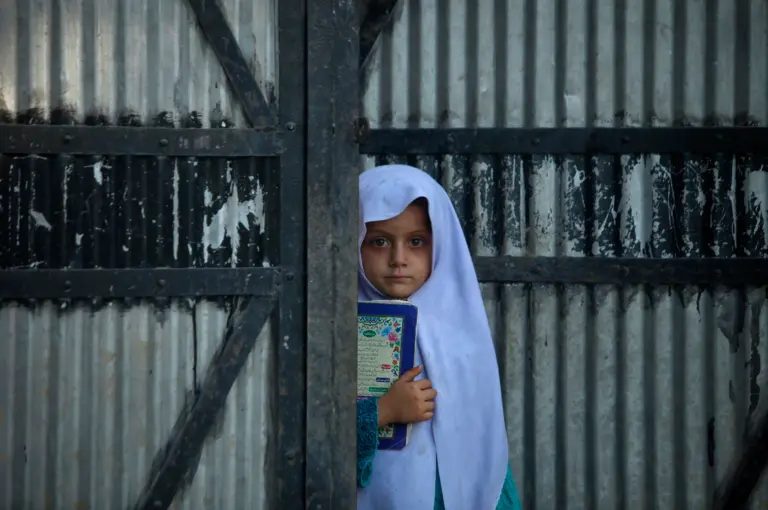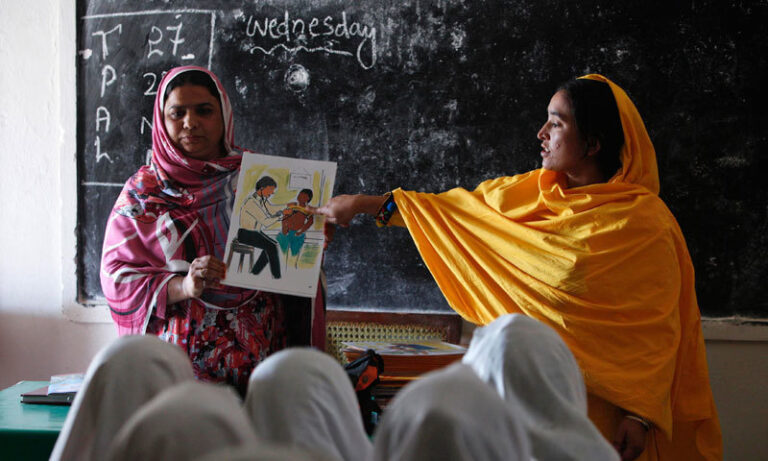Student Blog: ‘Debates in Peace & Conflict’
What are the most pressing debates in peace and conflict studies today? In this blog, third-year IR students (of IR3048 and IR3038) engage critically with diverse topics of peace and conflict. The blogs are purely reflective, and Dr. Malaka Shwaikh recommended using non-academic resources and to rely as much as possible on the discussion done within tutorials and during external speakers sessions. The blogs cover several thought-provoking topics from reflecting on ‘white saviors, to how linguistic concepts such as resilience and empowerment may lead to more harm than good, and questioning the role of the UN in peacekeeping today.
By Laura Hampton
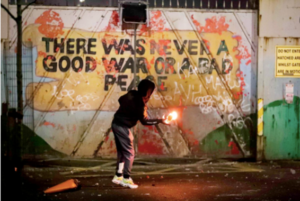
The state of ‘peace’ in Northern Ireland (NI) following the Good Friday Agreement in 1998 remains fragile with the issue of justice largely unaddressed. Riots at the site of peace walls are totemic signposts of a state that hasn’t moved far in pursuing justice. This blog will reflect on the question; can peace be maintained while issues of justice remain unaddressed?
By Yu Han
Discussion on Orientalism – stereotypes and clichés about Asian people

Orientalism signifies the description of the eastern impression from the perspective of westerners. Beginning with the phase of colonialism, the image generator from the west, albeit might not preserve comprehensive knowledge of the eastern culture they depicted, often utilize the western value system to reckon the culture and social norms in the eastern domain, especially when it comes to the field of religion and traditions. Thereby, derived from the topic of orientalism, it is normal to detect numerous misunderstandings and stereotypes in the western narratives estimating the orient world.
By Magnolia Yuan
Unveiling the ‘accountability’ of the Western Salvation
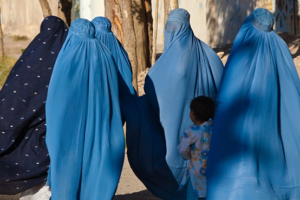
In terms of the contemporary acts in American intervention in liberating or saving Afghanistan females, the ethics of the “War on Terrorism” and the “accountability” of saving them should be taken into account. One of the most important cultural icons during this procedure would be the burqa of Afghanistan women, which conveys significant cultural meanings and rhetoric. I argue that “the burqa” has been appropriated by the U.S. as a symbolic product of justifying its military intervention by constructing the Afghan women as slaves in need of “saving”.
By Maddie Squires
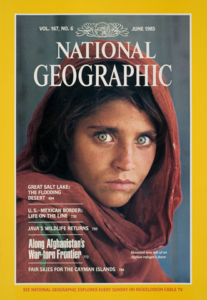
The Problems of Photojournalism
The entrenchment of photojournalism in Western media, especially in areas of conflict, has created a perpetual narrative in which people, mainly from the Global South, are in constant need of aid and intervention from the Global North, facilitating the idea of the white savior complex. In this Orientalist view of the situation, Eurocentric knowledge and ideas are forced upon the rest of the world in order to ‘save’ them from the situation they are in, whether that be conflict, poverty, disease, or something else.
On Peace, Justice & Structural Violence
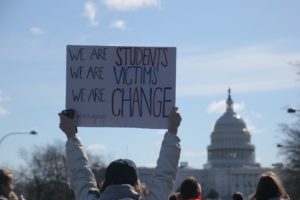
Over the past five years, I have attended almost two dozen protests of varying issues – from global inaction over climate change to the U.S. involvement in the war in Yemen. Each protest I participated in shared one common theme: they were all in opposition to systems of injustice that prevent one or more groups from experiencing peace.
By Alexander Taylor
To Whom Shall the UN be Accountable?
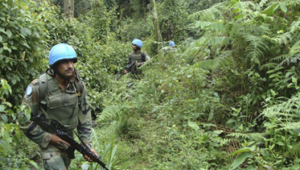
I believe that when it comes to government, national or international, accountability should be at the forefront of people’s thoughts. It is more important than ever that we hold the politicians, police, military, and organizations that we are supposed to put our trust in accountable if they commit crimes or actively work against the interest of the citizens they are supposed to represent. Unfortunately, this level of accountability is difficult to achieve, and this brings me to the dubious case of the United Nations (UN).
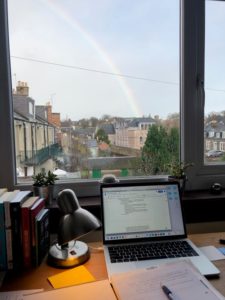
By Grace Hudson
The Role of Academia and Education in Conflict
Some traditional scholars in the discipline of International Relations condemn critical perspectives and theories for being just that, critical. Stating that they merely criticize others’ work, propose no ideas of their own, and have no practical solutions. I would have to strongly disagree with this argument.
y Aiden Hawker
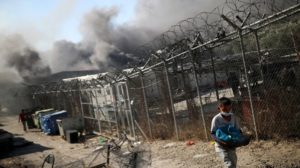
Whose peace do refugee camps really secure?
The intuitive, almost instinctive answer is that refugee camps secure the peace of the refugees within them. I argue, however, that refugee camps, particularly those in the case of the European migration crisis, serve a different peace – the peace of those outsides who feel threatened by the perceived refugee ‘other’.
By Octavia Chappell
Navigating the Terminology of Victimhood
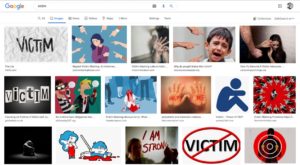
In today’s political climate it has never been clearer that language matters. As I write, impeachment managers in the United States Senate are exhibiting how the language used by a former President directly incited a violent insurrection in his own government. This trial dominates the news, yet, at the same time, little attention has been paid to the implications of language in disempowering the agency of those outside the Global North who have experienced some of the most intense conflicts and resulting trauma imaginable.
The construction of difference and the ‘West’ as superior through poverty porn

In pictures and in video ads of international as well as nongovernmental organizations what we often see is a Black, Brown, Asian, Indigenous, or other ‘minority ethnic’ child (when viewed from the perspective of the white Western donor), pictured from ‘above’, looking vulnerable or ‘helpless’ that should evoke compassion and empathy and the wish to help.
By Rhea Soni
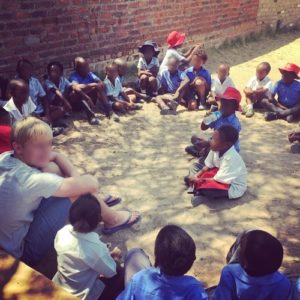
Volunteer Tourism: a neo-colonialist perspective
As a 9th grader in high school, I went on a volunteer trip to Cuzco, Peru, in the hopes of gaining a more holistic understanding of Peruvian culture by participating in Spanish classes and teaching English at a local orphanage. I signed onto the trip under the impression that I would be “helping” the local orphans learn English and better my Spanish—a justifiable cultural trade (in my 13-year-old opinion). However, reflecting on the trip made me realize that I was contributing to the neo-colonialist power structures that separated me from “them”, and made me believe that as a 13-year-old, I was more equipped to teach English than a local teacher.

By Hannah Suiter
How hidden meanings in the words we use as students, academics and peacemakers can affect chances for peace
The words we use, much like the people or actions they are attached to, are not passive in our study of peace and conflict.
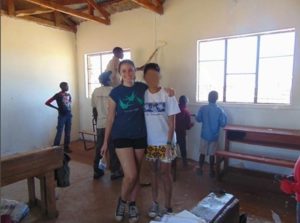
By Kiran Hughes
On White Saviorism
Having grown up in Africa as the daughter of two white, American parents who work in public health and development, I have a fairly intimate understanding of white saviors.
By Surina Martin
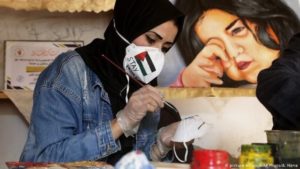
Crisis on crisis: COVID-19 in the Gaza Strip
It’s been seven months since COVID-19 was declared a global pandemic, and it’s hard to remember what life was like before it all. I almost forgot that Brexit was still a thing as the headlines were dominated by a coronavirus. Yet for many areas affected by fragility, conflict, and violence (FCV), already existing tensions did not take a peripheral position but were rather exacerbated by the outbreak of the virus, which necessitated effective communication between governments, health services, and the public. One such affected area is the Gaza strip, which continues to be a major site of conflict between Israel and Palestine.
By Delaney Flanigan
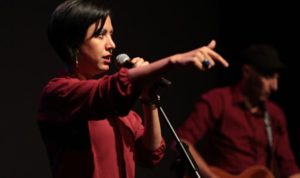
The impact of existing structures of knowledge production on oppressed communities: reflections on the work of Rafeef Ziadah
A critical view of the relationship between knowledge and power asserts that there is never a single understanding of an issue or topic, instead, there are hundreds of understandings, yet very few are endorsed and accepted (for more information on this see the work of Walter Mignolo and Michel Foucault).
By Laoise Rogers
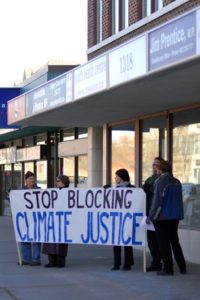
Problematizing Climate Resilience Discourse
‘Resilience’: a word that, for me, would have previously evoked solely positive images of strength and the ability to overcome adversity. However, our tutorials this semester have encouraged me to analyze the language of peace and conflict studies more critically. I decided to further delve into ‘resilience’ in relation to the threat of climate change to humans. Climate change is a threat multiplier and significantly exacerbates many peace and conflict issues, so it is important to reflect on the effects of popular discourse.
By Hannah Suiter

Instincts and Peacekeeping: How to go beyond our ‘first thoughts
When conceptualizing contemporary peace efforts, I am instructed by an old saying. It posits the idea that when faced with a problem, our first thoughts are primarily a reflection of our environment and the context in which we live. What we think next, which can either agree with or refute our first thought, is who we really are. Too often when we speak of conflict, our ‘reasoned minds’ choose to cling to our first thoughts. These can be used to justify strategies, such as military intervention, or even an Orientalist feeling that the people of a nation are ‘used to’ a conflict, or are naturally violent. We are guilty of being satisfied within the comfort of our own preconceptions, and the powerful amongst us are trusted to act upon them.
By Ella Handy

The Importance of Decolonialising Definitions of Peace
Language has always been utilized by Western interventionists in conflict zones to construct and preserve (neo)colonial power dynamics. Poststructural scholars believe that those in power create knowledge, and this knowledge in turn creates further power, in a cyclical relationship. This theory can be very much applied to definitions of peace.
By Natalie Wong
Why is liberal peace problematic?

Liberal peace is defined as a dominant form of peacebuilding based on particular values aimed at restructuring and regulating countries in the global South to prevent conflict and poverty. Liberal peace can be problematic because liberal values, which underpin it and which it seeks to impose (at times forcefully), are Eurocentric and tend to run counter to the local values of the global South. While it may no longer be helpful to rely on such overly simplistic dichotomization of ‘the West’ against ‘the rest’ as polar opposites, which has been blurred by globalization and the exchange of ideas, it is important to make the distinction between an amicable exchange of ideas and the forceful imposition of specific Western liberal democratic ideals.
By Ailsa Martin
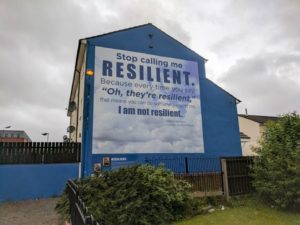
Challenging Resilience
The ability to bounce back from adversity, to meet challenges with positivity, and to remain strong when others would crumble. An attribute many employers value, resilience has become quite a buzzword in society. Resilience is a label given to individuals, communities, and states that have been subjected to challenges many others have never experienced. Fragility, fear, and inequalities are masked behind acts of strength idolized by those on the outside. In international relations, humanitarian crises are often met with narratives of resilience – communities coming together to support one another in times of crisis. But why should this be necessary?
By Maria Zoe Caimi
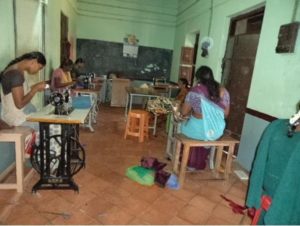
Is Empowerment Truly All That Empowering?
Empowerment can be defined as the act of giving the marginalized, usually women, an opportunity to demonstrate a certain degree of autonomy and self-determination in their everyday lives. In recent decades, the West has taken a keen interest in empowerment, seeing it as the panacea for all women’s ills. This view has caused empowerment programs to evolve into a magic bullet used by the West to justify their establishment of liberal capitalism abroad.
By Jasmine Humphrey
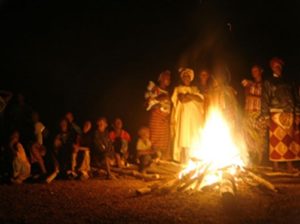
Local voices
Is peace possible? Well, after ten weeks of invaluable IR3048 discussions and a year filled with crises that ranged from police brutality to a global pandemic, this question has grown to resonate with me. I feel that there are various changes needed to make the world a more sustainably peaceful place, and, among the most important, is centralizing local voices. As a language student especially, I feel we must emphasize engaging with the right discourse to build peace.
By Grace Bitner
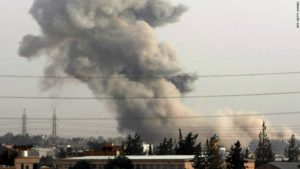
The United Nations: For the Many or the Few?
The United Nations is one of the largest protectors of human rights around the world, yet the power of the permanent five members (Russia, China, the United States, the United Kingdom, and France) on the UN Security Council (UNSC) demonstrates that, structurally, the UN is controlled by those five countries. Specifically looking at intervention, these countries have the ultimate power: they authorize mandates, alter them, and end them – demonstrating either success or a lack of will to continue. Identifying these oppositional patterns – a structure for the few, yet a humanitarian discourse for the many – led me to question which aspect has more power. Who does the UN serve?
By Alexandra Kenyon

Photojournalism as a Problematic Concept
Prior to beginning this module, I thought I had a pretty good grasp of a “critical” perspective of international relations. However, I quickly realized that I was not as aware as I had thought – there were many issues that have been discussed that I had not thought twice about: I was feeding into the privileged obliviousness that so many in the West do. A key example of this would be my lack of awareness surrounding photojournalism and its use in humanitarian intervention.
By Catriona R.
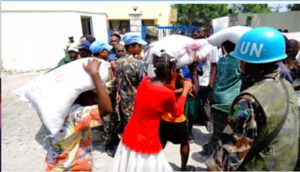
Within peacekeeping mission history there are frequent examples and accusations of trading resources/aid in exchange for sex, participation in sex trafficking operations, and sexual misconduct from the individuals. There is a known correlation between peacekeeping presence and the proliferation of sex work/trafficking in the region. The women in question are generally displaced or living in a conflict area, and often are dependent on aid. Peacekeepers in light of this are taking advantage of a vulnerable population who are without choice. This is not ‘boys being boys’ or a simple case of ‘supply and demand’ – its exploitation.
By Surina Martin
Crime Without Punishment: Peacekeeping and Sexual Abuse
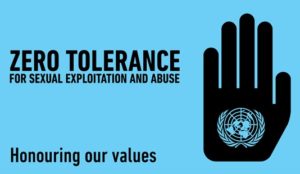
The Responsibility to Protect (R2P), the UN’s political commitment to protecting human rights, provides the UN with a moral framework within which their actions are legitimized. Used to buttress intervention in a conflict, UN Peacekeeping forces are the guardians of this noble cause; R2P frames them as forces for good who serve in the interests of civilians’ safety, protecting them from gross violations of their rights. But what happens when those very people who hold such a responsibility are complicit in the crimes against those they swore to protect?
By Emma H.
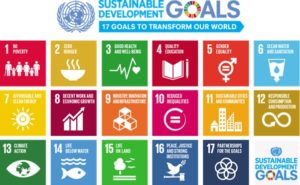
Regionalization in UN Peacekeeping is needed for a sustainable future
To be blunt, regionalization – the process of the devolution of peacekeeping missions in some capacity to organizations closer to the action – is the way forward if the United Nations is as profoundly dedicated to tackling climate change and the related Sustainable Development Goals (SDGs) as they appear to be. The 17 SDGs promote gender equality, economic security, and level access to electricity for all amongst other commitments.
By Katherine Cully

“Never Again… In the West”
Ready to explore local peace processes like the Gacaca Courts in Rwanda, I began a short documentary on YouTube, and partway through, I felt a sudden rush of horror and tightness in my chest. The scene in front of me showed clothes, jewelry, and personal items that remained in a church where thousands were killed as part of the Rwandan Genocide in 1994.
By Maria Ornes
After peacekeeping, is there justice? An analysis of the efficacy of the ICC and its role as a peacekeeping tool
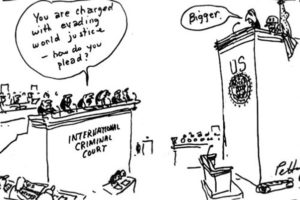
Usually, when discussing world events society focuses on how to solve global crises; however, what happens following the conclusion of peacekeeping efforts? Since the Nuremberg and Tokyo Military Tribunals, the world has grappled with the need to have an internationally recognized justice system while still respecting a state’s sovereignty. In 2002 the Rome Statute founded the International Criminal Court (ICC) with the mandate of investigating individuals, such as heads of state, for crimes against humanity. Unfortunately, many of the most powerful nations are not signatories; something that has damaged the legitimacy of the ICC on the international stage.
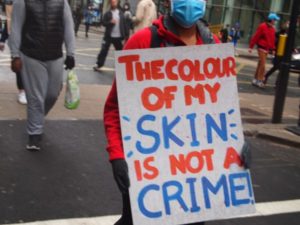
By Laoise Rogers
Could Western societies become more internally peaceful?
Without formal means of policing and punishment, would Western societies be ravaged by violent conflict? Many would contend that violence is inevitable, necessitating these structures. However, ‘peaceful societies’, where violence is rare, do exist – showing internal conflicts can be managed through alternative methods that prioritize peace and socialization of the rejection of violence (Bonta, 1996).
By Ella Handy
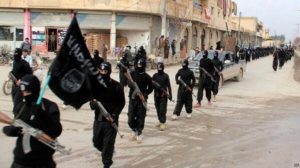
War reporting: a tool for peace or fueling the perpetuation of violence?
Throughout history, war correspondents have played a vital role in bringing the horrors of conflict to the attention of the world. However, there is a fine line between shocking world leaders into action to promote peace, and aiding the perpetuation of violence against victims of war by using politically-charged, gendered, and neocolonial language.
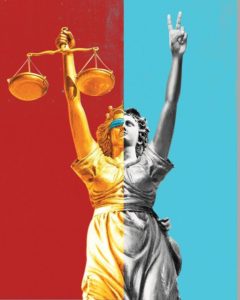
By Natalie Wong
What comes first: justice or peace?
The debate of justice or peace, which comes first, implies a universally-applicable prioritization of the two contested concepts. I argue that such prioritization and generalization are not an apparent possibility. Furthermore, while justice may be seen as a prerequisite to peace, I argue that simultaneously addressing both may be more productive to secure sustained justice and peace.
By Claire Elman
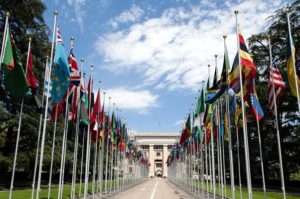
Can the UN be neutral?
In our conflict management course, we have learned that the United Nations peacekeeping ideology is founded on three core principles: host-state consent, impartiality, and non-use of force except in self-defense. The UN claims to stick by these principles, but at points throughout its tenure, each principle has been challenged. I would argue that the UN fundamentally fails to be impartial.
By Alexandra Imberh
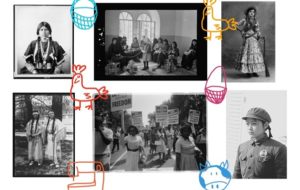
What’s wrong with empowerment?
Empowerment is the buzzword – as a woman in Western society, I cannot escape its promising call: ‘Girl-boss’ mugs and ‘how to take control over your own life’ guides and ‘use your voice’ and ‘fight like Wonder Woman’ advertisements – but for what purpose? To conform to a standard of individual success purely measured in neo-liberal economic monetary terms? Are we changing the power relations of oppressing patriarchy by selling soaps in our own shop on Etsy and donating money so that marginalized women in other parts of the world can learn how to make soaps, too?
By Delaney Flanigan

How is empowerment a Western tool of control?
In recent years, the term and process of empowerment have become increasingly prevalent within the political sphere. The Merriam-Webster online dictionary defines empowerment as “the granting of the power, right, or authority to perform various acts or duties”. Yet despite this broad description, when I think of what an ‘empowered individual’ looks like, very specific images come to mind. In my experience, those designed as ‘empowered’ are individuals who exemplify Western values, such as those who find financial success through capitalist pathways or those fighting for human rights, usually in a non-Western nation.
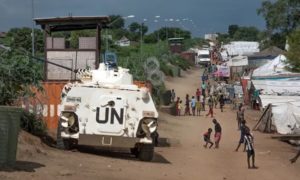
By Hannah Vanderstappen
Social media’s potentially leading role in peacebuilding’s ‘local turn’
Whilst traditional mass media’s role in peacekeeping has been substantially analyzed and possesses an array of empirical evidence; social media, as a relatively new technology, has largely been lacking any consideration in peace and conflict studies.
By David Anderson
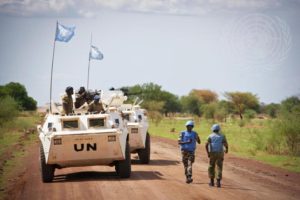
The UN: A Vehicle for Peace?
For many in the West, the dominant narrative is that the United Nations (UN) is a necessary vehicle for peace. Indeed, this was my own view until recently but here I challenge this naturalized position by asking whether the UN is really a peacemaker.

